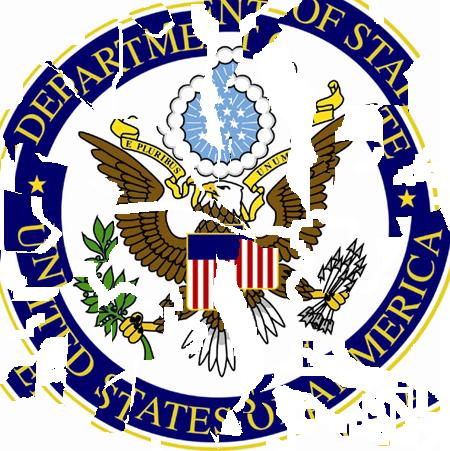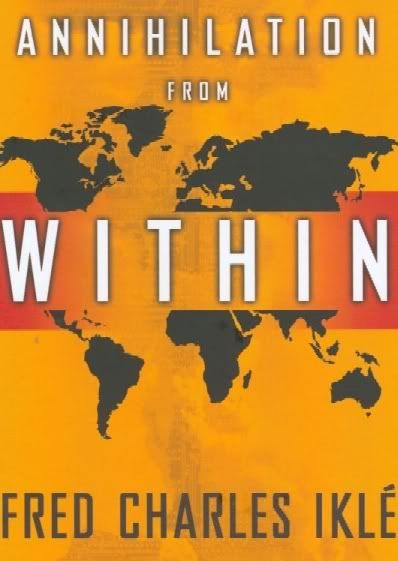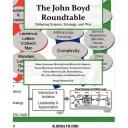
Senator Hillary Clinton, the Secretary of State designate of the incoming Obama administration has been given the most prestigious post in the Cabinet by her former presidential rival but also one of the toughest jobs in the U.S. government. The diplomatic challenges facing the United States are numerous, daunting and dangerous even as we are embroiled in a war against a global insurgency composed of radical Islamist terrorists and their local tribal, religious and governmental sympathizers. America’s diplomatic “brand” is sorely in need of rebuilding and our oldest security pillar, NATO, is failing in Afghanistan. There are herculean tasks awaiting Senator  Clinton.
Clinton.
However prepared or determined Hillary Clinton might be, the U.S. Department of State is not up to the job.
I say this not to bash foreign service officers. The average career diplomat is no more responsible for bad bureaucratic behavior in Foggy Bottom than a U.S. Army major in Iraq should be blamed for cost overruns for the Future Combat System. The problems of the State Department are systemic and there’s more than enough blame to go around. When State has reached the juncture where it is crippled in carrying out it’s core mission of diplomacy because it’s people lack language fluency, seldom leave massive fortress embassies and labor under a byzantine and dysfunctional personnel system marred by favortism and seniority, it’s time to go back to the drawing board. The window of opportunity is now.
Secretary of Defense Robert Gates recently told a brutal truth about American foreign policy:
“My message is that if we are to meet the myriad challenges around the world in the coming decades, this country must strengthen other important elements of national power both institutionally and financially, and create the capability to integrate and apply all of the elements of national power to problems and challenges abroad. In short, based on my experience serving seven presidents, as a former Director of CIA and now as Secretary of Defense, I am here to make the case for strengthening our capacity to use “soft” power and for better integrating it with “hard” power
One of the most important lessons of the wars in Iraq and Afghanistan is that military success is not sufficient to win: economic development, institution-building and the rule of law, promoting internal reconciliation, good governance, providing basic services to the people, training and equipping indigenous military and police forces, strategic communications, and more – these, along with security, are essential ingredients for long-term success. Accomplishing all of these tasks will be necessary to meet the diverse challenges I have described.
….What is not as well-known, and arguably even more shortsighted, was the gutting of America’s ability to engage, assist, and communicate with other parts of the world – the “soft power,” which had been so important throughout the Cold War. The State Department froze the hiring of new Foreign Service officers for a period of time. The United States Agency for International Development saw deep staff cuts – its permanent staff dropping from a high of 15,000 during Vietnam to about 3,000 in the 1990s. And the U.S. Information Agency was abolished as an independent entity, split into pieces, and many of its capabilities folded into a small corner of the State Department.
….Funding for non-military foreign-affairs programs has increased since 2001, but it remains disproportionately small relative to what we spend on the military and to the importance of such capabilities. Consider that this year’s budget for the Department of Defense – not counting operations in Iraq and Afghanistan – is nearly half a trillion dollars. The total foreign affairs budget request for the State Department is $36 billion – less than what the Pentagon spends on health care alone. Secretary Rice has asked for a budget increase for the State Department and an expansion of the Foreign Service. The need is real. Despite new hires, there are only about 6,600 professional Foreign Service officers – less than the manning for one aircraft carrier strike group. And personnel challenges loom on the horizon. By one estimate, 30 percent of USAID’s Foreign Service officers are eligible for retirement this year – valuable experience that cannot be contracted out.”
There many things wrong with the State Department as an institution and with the frankly insular and anachronistic cultural worldview that it tends to inculcate but starving State of operational funds and personnel – the historic reflex of the U.S. Congress – is not the road improvement. While money for “more of the same” is not an acceptable answer, demanding that diplomatic miracles be performed by the seat of the pants on a shoestring budget is a position worthy of a village idiot.
Now is the time for a strategic rebuilding of the State Department, as well as the Foreign Service, as the linchpin in a new national security system conceived in terms of interagency jointness, a Goldwater-Nichols Act on steroids. The old State Department structure was reformed by Charles Evans Hughes, who as Secretary of State in the early 1920’s found that his staff was too small and procedures too antiquated, to adequately cope with the modern world. So Huges rebuilt it, creating State’s specialization and mission structure that yielded a constellation of statesmen and grand strategists a generation later, including Dean Acheson and George Kennan, when America and the world needed their vision most. Great leaders either found new systems or they are the ultimate product of them.
Secretary Hughes did a superb job but America can do better than our great-grandfather’s State Department.
Senator Clinton, President-elect Obama and the next Congress should move boldly and retire the State Department as it has been the way Hughes waved goodbye to the quaint and time honored practices of the 19th century. We need not a half-step but a leap:
In broad terms, the White House and Congress need to look for a new model for a Goldwater-Nichols II to create a flatter, more adaptive, fast-moving, structure for foreign policy implementation than the industrial age mammoth bureaucracies with their rigidly compartmentalized, hierarchical “cylinders of excellence“. With economic interests and non-state actors attaining prominence alongside traditional political and military concerns, our response time needs to be keyed to adversaries and partners who have a network structure rather than a hierarchy. As RAND scholars John Arquilla and David Ronfeldt have suggested, networks are more easily attacked by other networks, not by slow-moving hierarchies .
Technically, what I am proposing is in organizational terms is that the United States began executing foreign policy through modular networks, which combine the advantages of specialization and control offered by hierarchies with the supple resilience and adaptive capacity of scale-free networks. In practical terms, this would mean pulling experienced, suitably senior, personnel out of their respective bureaucracies and putting them into IT-networked multidisciplinary, field teams with a strict task orientation and real decision authority. A reform that will only bear fruit if future budgets and individual promotions are removed from the hands of bureaucratic managers back in Washington and tied directly to team performance, with team members practicing a 360 degree review system .
These field teams must be financially autonomous, answering not to their departmental hierarchies in Washington but to the NSC collectively, with the National Security Adviser as liason. The current situation, where many have the ability to say “No” with no one person having the clear authority or accountability being able to say ” Yes”, must go. Reforming the foreign policy process by “flattening” it, will yield a number of advantages over the present system:
* The orientation is on mission task rather than bureaucratic “turf”. Everyone sinks or swims together.
*Foreign policy problems will be analyzed holistically and decided upon collaboratively instead of in a compartmentalized and adversarial fashion.
* Most decisions will be made much closer to the problems. And be made by people whose knowledge reflects true depth of understanding.
* The time required to move from proposing foreign policy options to presidential policy is much reduced.
* Streamlined information flow, minimizing the ability of senior departmental managers in Washington to spin, edit and water down unwelcome news.
* Instead of putting State or Defense in charge across the board, as is customary in today’s interagency process, leadership of a field team can be quickly moved to the member whose expertise or skill-sets are most closely related to the problem.
* Shifting the worldview of an age cohort of officials from a parochial departmental perspective to one that embraces a broader, “horizontal” analytical framework.
* The system will be oriented to provide career incentives to the collaborative problem-solvers rather than obstructionists and bureaucratic saboteurs
And we should reach beyond the confines of the USG and other states and IGO’s; the questions are, “Who has the capability? Who has the money ?”. In Great Powers: America and the World After Bush , Thomas P.M. Barnett wrote:
, Thomas P.M. Barnett wrote:
“To be effective, then, America’s grand strategy needs to connect its total DIME package-as much as possible-to those tail end “E” players in the private sector, thus avoiding the self-delusion that globalization expands primarily in response to public sector supply….the truth is that the vast majority of infrastructure devlopment ($ 22 trillion over the next decade alone) inside emerging and developing economies comes as a result of private sector demand ” pull” – those 3 billion new capitalists and all the resources they need to catch up in economic development”
State should fit into the interagency -System Administration system as the “old hands”; their diplomatic careers need to be about regional, in-country depth that is rich in tacit, “local” knowledge that can read strategic advantage in subtle nuance and build connections across diverse communities ( the CIA is there to talk to the really dirty but not to be ignored players). They are our relationship builders across the DIME spectrum and premier OSINT operators but to be effective, diplomats need to be invested long term. Shuttling from post to post across the globe, Yemen one tour, Thailand the next, then Washington with Paris as a pre-retirement plum is a damn stupid way to cultivate your diplomatic talent pool. Letting an old boys network determine their assignments rather than national security needs is also asinine. Get the career incentives right. Patricia Kushlis, blogging at Whirledview, nailed the problem with the current mentality of State:
“But if service in Iraq, or at other hardship posts, is truly valued, maybe by-the-by, State could rethink how it hands out awards. Why, for instance, was the Deputy Chief of Mission (second in command of the embassy) in the US Embassy in Rome anointed DCM of the year? Great hardship post that it is.
….Of the 11,500 total, 6,500 are Foreign Service Officers the other 5,000 are Foreign Service Specialists and the Service is so short-staffed – thanks to the Bush administration and a recalcitrant Congress that have been unwilling to increase the size of the service – the 270 officers and specialists or so assigned to Iraq mean positions elsewhere go begging.”
Would Senator Clinton do something like this? Or even recognize the magnitude of the problem that needs fixing? This may be one of those moments where an intense personal ambition is in harmony with partisan politics and national interest. In 2016, America will not elect a querulous old woman but they might decide to elect an iron lady of a statesman. I am no friend of Hillary Clinton, but by dragging the State Department into the 21st century, Hillary Clinton would be validating a President Obama’s choice in her as Secretary of State and rendering a great service to her country. As a candidate for president, she would have an unimpeachable gravitas that no other candidate could match.
The Department of State needs to be broken so that it may become stronger.
UPDATE:
Here are some great suggestions from Matt Armstrong at MountainRunner:
Reforming U.S. Public Diplomacy for the 21st Century
Very quickly (warning: it may be too quickly written), here are some complimentary and possibly opposing ideas I’m throwing out into the ether on reforming public diplomacy not necessarily addressed in Heritage’s report:
- Establish both an objective and principles of international engagement. Understand why we are engaging – not just communicating – with the world. The national security policy and this mission must be synchronized. Public diplomacy, strategic communication, or whatever you want to call it is central to our national security. Bullets and bombs do not protect our financial system from rumors. They do not protect our health when we need to respond to pandemics and they do not deny sanctuary for terrorists and insurgents and their ideology. Suggested principles: telling the truth, explaining the motives of the United States, bolstering morale and extending hope home and abroad, giving a true and convincing picture of American life, methods and ideals, combating misrepresentation and distortions, and aggressively interpreting and supporting a smart American foreign policy developed and implemented in conjunction with the above principles and long term views. This should also lead to a much simplified National Security Strategy with easy to read, translate, and PowerPoint bullet points.
- Convince Congress of the need to accept and support the principle(s) of engagement. “Real security, in contrast to the relative security of armaments, could develop only from understanding and mutual comprehension.” Congressional support is required for any revamp. They must be assured the problems from the past are the past and the future is well thought out. Promise serious and critical semi-annual public reports to be presented to Congress written by people who understand the issues. The threat is not just from “radical Islamists”, but from the criminals, the Chinese, the Russians, and others.
- Realize that we need a Department of Non-State. The DNS could be conceptual or a separate entity, but realize that extracting public diplomacy from State means we should similarly gut DOD, FDA, USDA, and DHS from their ability to communicate with the world. Extracting “R” from State would mean it is only the Department of State at a time when not only are non-state actors from Al-Qaeda to Hamas to No Mas FARC to the Gates Foundation more important and powerful than ever, but engagement with states is increasingly a public affairs. The USIA was a DNS, however a future DNS/USIA/USAGE (U.S. Agency for Global Engagement, my preferred acronym) didn’t have the power it would need today. Coordinating requires right of oversight on key personnel choices and input on programming across the board, not just access to the President. Perhaps it should have two masters like the DOD does. It may be best to keep this in State as State must transform from the 19th Century organization it is.
- Re-align State’s regional bureaus with DOD’s Combatant Commands. Increase the power of these regional bureaus by having “super-ambassadors” akin to Combatant Commanders. World affairs are decreasingly subject to the geopolitical borders on which the State Department is aligned. AFRICOM could provide some lessons with its co-deputy structure of State and Defense. State must have a greater presence and power to operate regionally. Create and empower more DASS positions like Colleen Graffy’s who operate regionally rather than within country. This will not to diminish country teams but provide greater regional / cross border integration. It will also help align with and increase collaboration with DOD.
- Realize Foreign Aid and Humanitarian Relief and all manner of capacity building is “public diplomacy” in action. The Marshall Plan, the greatest reconstruction, stabilization, and education and exchange program ever put forward was a program that was in large part a denial of sanctuary program. In response to the MP, the Communists flipped and reorganized and vastly increased their volume and tempo of their lies and distortions. The bad guys don’t like stability. The Smith-Mundt Act was passed largely as a response to the uptick in Communist propaganda against the MP. Don’t exclude Foreign Aid from the picture today.
- Break down the barrier between Public Affairs and Public Diplomacy in the State Department. This is global communication and there is a need to be agile, cooperative with the media and very often “pre-active” to help shape discussions by informing and educating along the way. Drop zero-tolerance for errors, push down “PA authority” to lower levels, give everybody media training, and adopt the 4-E’s Caldwell is pushing at Leavenworth in new Army Doctrine: empower, educate, equip, and encourage. Engage the public, domestic and foreign, at every opportunity. Use social media, blogger roundtables, and other means to engage in Q&A. Increase language training and have websites like state.gov available in multiple languages with the headlines on the major pages reflecting the likely interest of the linguistic profile. This is common in our allies, why not the U.S.? Increase the agility of DipNote and America.gov. Increase the flexibility of America.gov and similar assets to report on foreign policy of the U.S. and not simply echo press releases.
- Re-align the walls between Public Affairs, Information Operations, and Psychological Operations. PA is largely re-active and IO and PSYOP understand the power of information. Much of what they do is “white” and overt so move the lines to remove the “stigma” and empower the “PA” who should be “communication officers” or something similar. Agility is required today.
- Return to the original purposes, principles, and intent of the Smith-Mundt Act that included the principles listed above. Dropping the firewall will increase American’s knowledge and oversight of overseas activities conducted in their name and with their tax dollars, raise the bar for domestic media who once through foreign bureaus were a public service, and accept that the truly global information environment does not stop at the water’s edge.
by Thomas P.M. Barnett
by Adrian Goldsworthy
by Adam Tooze
by Mark Safranski, Daniel Abbott, Chet Richards, Shane Deichman, Thomas Wade, Frans Osinga, Adam Elkus and Frank Hoffman. Foreword by Thomas P.M. Barnett
by Frans Osinga



by Martin van Creveld
by Nassim Nicholas Taleb
by Carl von Clausewitz
by Fred C. Ikle
by John Lewis Gaddis
by Simon Sebag Montefiore
by Richard J. Evans
by Robert Dallek












 Clinton.
Clinton.


